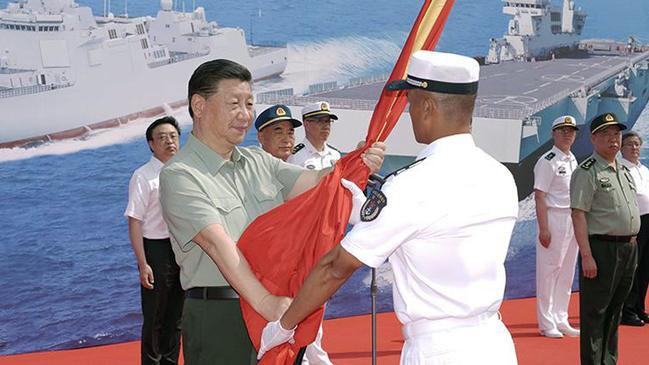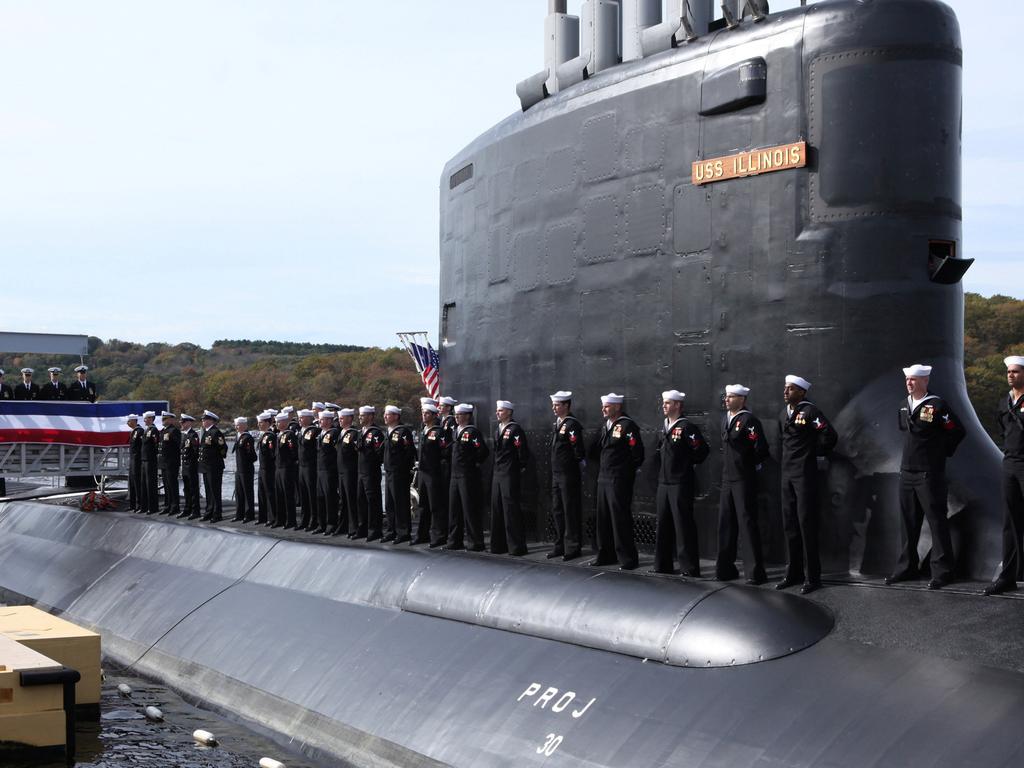AUKUS alliance: We deserve better than subterfuge on huge defence deal

Caution is especially necessary in responding to the government’s expectation of bipartisan support after offering the opposition only a sketchy, two-hour briefing without documents.
Given the scale and implications of this project, bipartisanship is not a bad thing. And we have a right to expect Australia will secure the best technologies the nation can afford.
That does not, however, mean we should suspend critical judgment. Blank cheques should never be accepted, and many questions remain unanswered about this deal, if it is a deal.
Will Australia retain sovereign capability in its naval shipbuilding plan? What will the local content be for the new subs, given that in the US this is contracted to a single company? There are also questions about preserving Australian sovereignty itself, because for many decades ahead AUKUS will lock Australia rigidly into the global strategic priorities of the US. It will do so regardless of who occupies the White House, or our own national interest.
The sovereignty and industrial capability issues are related. The Prime Minister has said at least eight nuclear submarines will be built in Adelaide, but does “built” mean manufactured, or merely assembled from imported components? How will we maintain, support and upgrade the subs over their life cycle? Achieving sovereign capability in building, operating, and sustaining a nuclear submarine fleet requires more than Australians bolting panels, implementing a wiring program and plugging in equipment. The “transfer” of US nuclear technology that has been spoken of would also mean acquiring intellectual property and training a skilled, nuclear-systems engineering, integration and design workforce. In other words, we would need to develop a local nuclear industry, but the government has not acknowledged this.
The suspicion that Australia might not acquire genuine sovereign capability under AUKUS arises because the US has always resisted sharing its strategic nuclear submarine technologies without achieving collateral benefits.
The Biden administration’s support for AUKUS derives from a perceived need to build a stronger alliance against China. So why wouldn’t the US expect to exercise control over how the new submarines are built, as well as how they will eventually be used?
If the goal of attaining sovereign capability in naval shipbuilding has been quietly set aside, it means the government has abandoned supposedly solid commitments to workers in Adelaide and their unions about creating jobs and expanding Australia’s skills base.
The government has not explained what type of nuclear boats will be built, nor how much they will cost, nor its reason for abandoning the Naval Group contracts. Having worked secretly on this new arrangement since early 2020, when Donald Trump was president, the government has been devious and dishonest with workers, unions, parliament and the French government. Yet the government says it wants closer defence co-operation with France. So why did the PM think it was appropriate to act in such a contemptuous and deceitful manner? All we know is the government intends to acquire eight hugely expensive nuclear subs, with construction not starting until 2030 and the first boat not operational until at least 2040.
The government has said it will take another 18 months to work out a nuclear safety regime for the boats, a training regime for crews and the sustainment workforce, and the local industry supply chains. It has not indicated who will make these assessments.
Although the government says it has yet to select a type of boat, it claims whatever type it chooses will not need to be refuelled or serviced in its 15-30-year life cycle. That claim needs to be explained, given that delivery of such a claim will depend on how the boats are used. What opportunities will there be for Australian companies, given the expected integration between the power system and the rest of the boat?
Then there is the crucial question of independent defence command and control of the systems involved, all central to the notion of sovereign capability. Is the government’s silence an indication it knows we’ll need a nuclear industry to be able to do these things?
This deal, which allegedly makes Australia safer, pushes the date of deploying the new subs out to 2040 at the earliest. Yet this is supposed to answer a threat from China that, it is claimed, exists today. While we wait for the nuclear subs to arrive, Australia will be drawn ever more tightly into the US projection of power in the Indo-Pacific. Won’t that make Australian involvement in war with China more, not less, likely?
And will our nuclear ambitions incite an arms race among our regional neighbours? What will the consequences be for our policy goals in the region?
These are all questions the government must answer, not fob off in its usual style. The Senate estimates and other committees will be busy seeking answers. And a select committee inquiry could well be warranted, given the gravity of these concerns.
Kim Carr is a Labor senator for Victoria. He is a former minister and shadow minister for higher education, innovation, industry, science and research.




“Look before you leap” is sound advice in politics, and nowhere is it needed more than in the biggest procurement in Australian history – the government’s AUKUS nuclear subs deal.